The Crimson Jewel of the Spice Rack: Why Kashmiri Red Chilli Should Be Your New Favorite Staple
If you're a spice lover who craves flavor without setting your mouth on fire, allow us to introduce you to one of the most underrated spices in the culinary world: the Kashmiri red chilli. Known for its vibrant color and mild heat, this chilli is more than just a spice — it’s an essential ingredient that can transform your dishes from drab to dazzling.
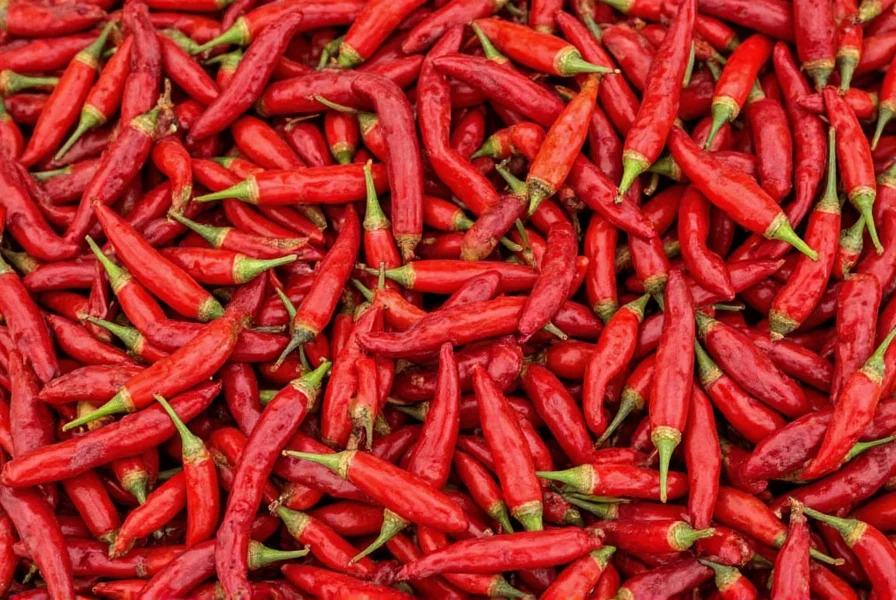
Table of Contents
- What Is Kashmiri Red Chilli?
- Why It Stands Out Among Other Chillis
- Flavor Profile and Heat Level
- Cooking with Kashmiri Red Chilli
- Buying Guide: How to Choose the Best Kashmiri Chilli
- Frequently Asked Questions
- Conclusion
What Is Kashmiri Red Chilli?
Kashmiri red chilli (Capsicum annuum) hails from the northern Indian region of Jammu and Kashmir. Revered for centuries in Indian cuisine, it’s especially popular in dishes from Punjab and Kashmiri households. Unlike hotter varieties like bird’s eye or ghost peppers, Kashmiri chilli brings the color without overwhelming heat.
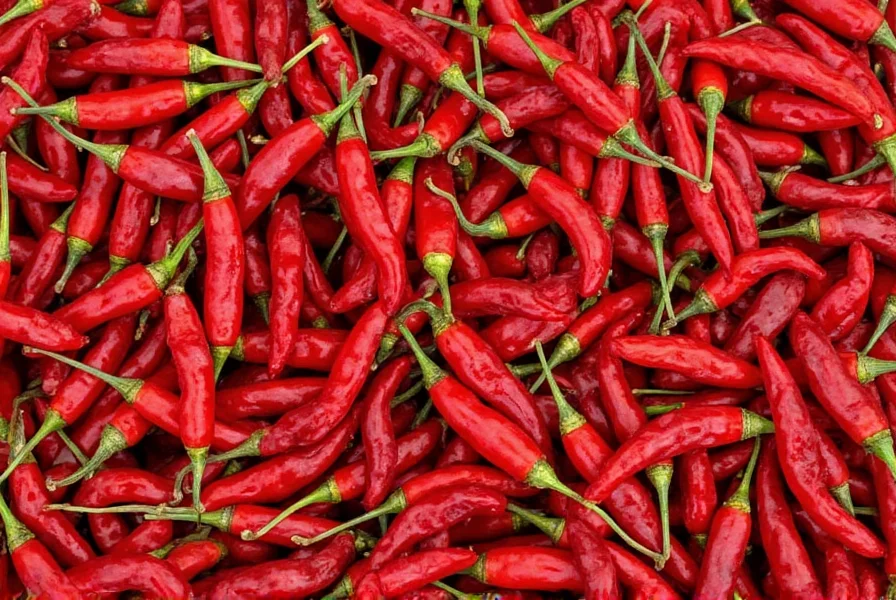
This deep crimson chili is typically sold dried or as a fine powder. The ground form is widely used in curries, marinades, and spice blends because it imparts a beautiful hue without scorching spice levels. Its unique characteristics make it a go-to for those who appreciate aesthetics and balanced flavor in their food.
Why It Stands Out Among Other Chillis
Let’s face it: not all chillis are created equal. Some pack a punch so fierce they leave your eyes watering before the first bite. Others offer complex flavors but lack visual appeal. Kashmiri red chilli manages to be both flavorful and beautiful — a true culinary multitasker.
| Chilli Variety | Heat Level (Scoville) | Color Intensity | Common Uses |
|---|---|---|---|
| Kashmiri Red Chilli | 1,000 – 2,000 SHU | Deep Red | Curries, tandoori, biryani, marinades |
| Cayenne | 30,000 – 50,000 SHU | Bright Red | Soups, stews, hot sauces |
| Ghost Pepper | 1,000,000+ SHU | Bright Orange/Red | Extreme spice dishes, chili contests |
| Paprika (Sweet) | Mild to Zero | Orange-Red | Garnish, goulash, potato dishes |
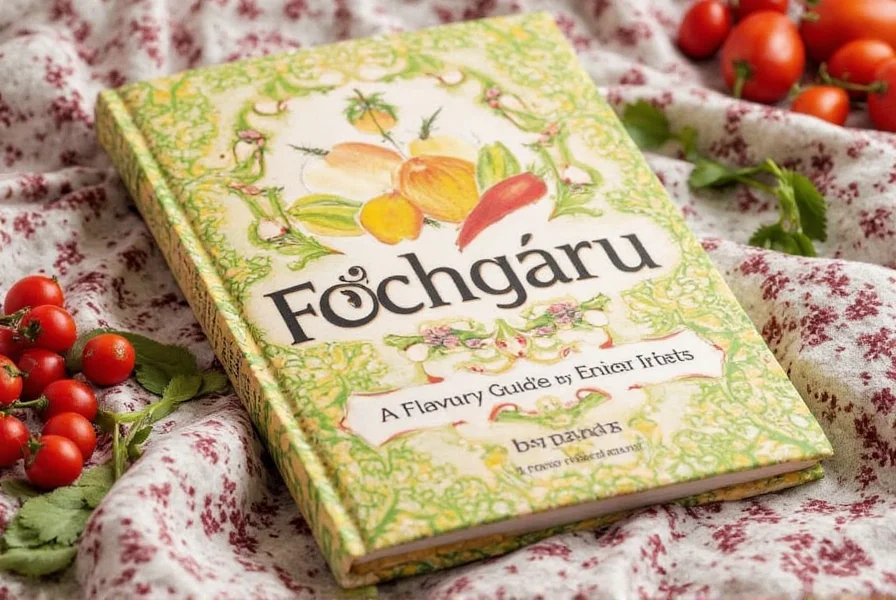
Flavor Profile and Heat Level
So what does Kashmiri red chilli taste like? Imagine a subtle earthiness, a whisper of smokiness, and a hint of sweetness — all wrapped up in a low-heat package. It doesn’t dominate a dish, which makes it perfect for layering flavors without overpowering other ingredients.
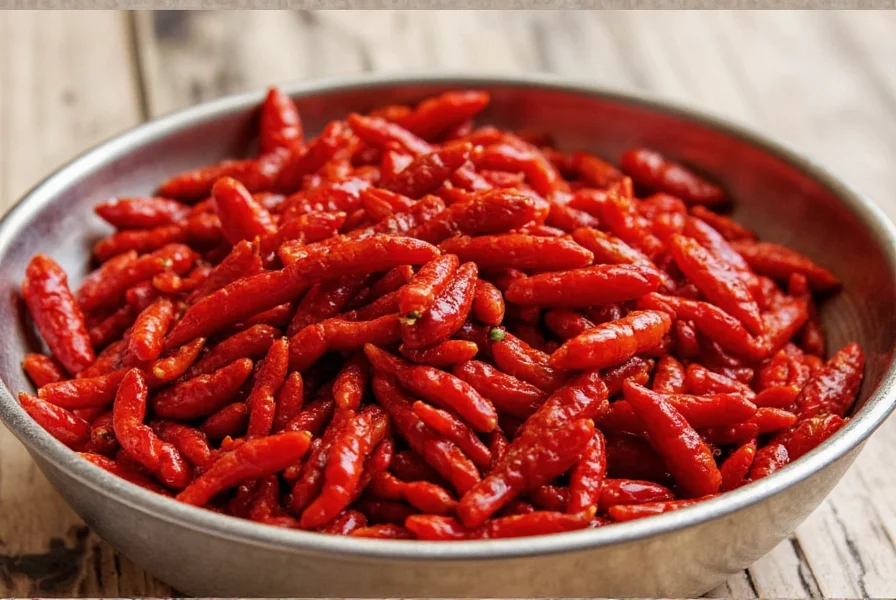
- Heat Level: Mild (around 1,000–2,000 Scoville units)
- Taste: Earthy, slightly smoky, faintly sweet
- Color Impact: Adds a rich, red hue to gravies and sauces
Cooking with Kashmiri Red Chilli
Ready to level up your spice game? Here’s how to make the most of Kashmiri red chilli in your kitchen:
- For Gravies and Curries: Add ½–1 tsp of Kashmiri chilli powder to tomato-based curries for a vivid red color without burning your tongue.
- In Marinades: Combine with yogurt, garlic, ginger, and a pinch of turmeric to create a beautifully colored and gently spiced base for meats or paneer.
- In Biryani: Use sparingly to tint the rice layer or mix into the meat masala for subtle heat and color.
- As a Garnish: Sprinkle lightly over finished dishes for a pop of color and aroma.
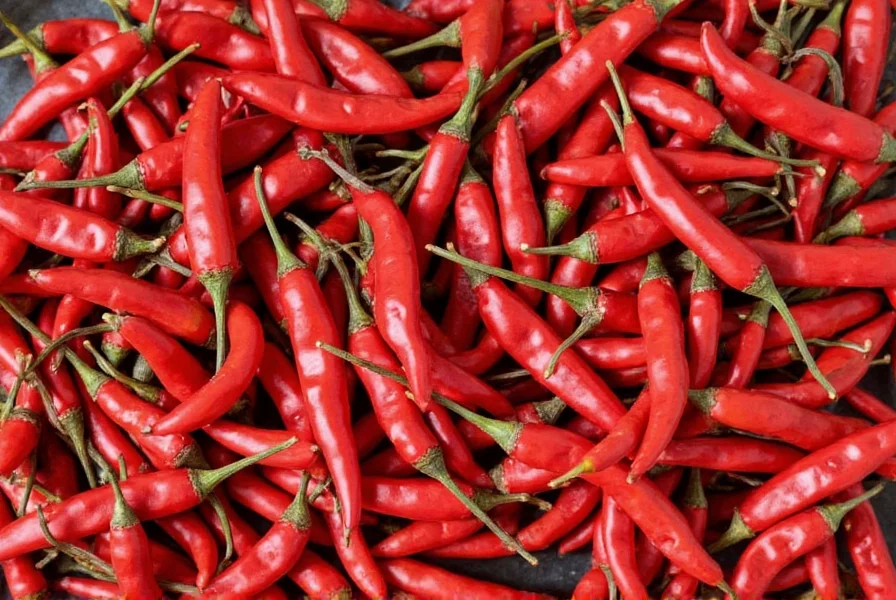
Recipe Spotlight: Kashmiri-Style Tomato Curry
A simple yet stunning curry made with tomatoes, onions, and the star of the show — Kashmiri red chilli. Here's how to make it:
- Ingredients:
- 4 medium tomatoes, chopped
- 1 medium onion, sliced
- 1 tbsp oil
- 1 tsp cumin seeds
- 1 tsp Kashmiri red chilli powder
- 1 tsp salt (adjust to taste)
- ¼ tsp turmeric
- Coriander leaves for garnish
- Instructions:
- Heat oil in a pan and sauté cumin seeds until fragrant.
- Add onions and cook until golden brown.
- Add tomatoes, salt, turmeric, and Kashmiri chilli powder.
- Cook until tomatoes break down and form a thick gravy.
- Garnish with fresh coriander and serve with naan or rice.
Buying Guide: How to Choose the Best Kashmiri Chilli
With so many varieties flooding the market, how do you know you’re getting authentic Kashmiri red chilli? Here's your handy guide:
Look for These Features
- Appearance: Whole Kashmiri chillies should be long, wrinkled, and uniformly dark red.
- Smell: A fresh, slightly fruity aroma. Avoid any musty or off-smelling packets.
- Texture: When crushed, the powder should feel slightly coarse, not overly fine or dusty.
- Origin: Authentic Kashmiri chilli comes from Jammu & Kashmir. Look for labels that mention this region specifically.
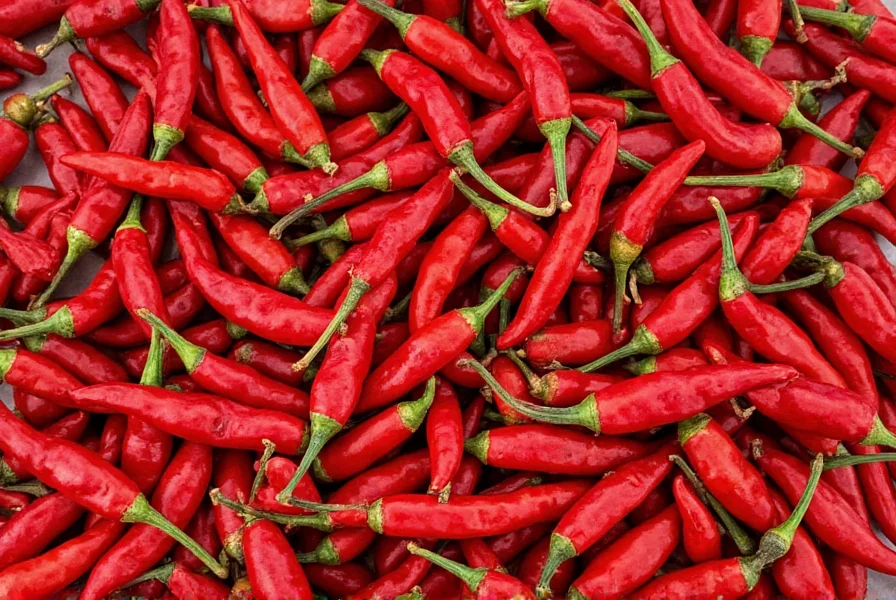
Top Recommended Products
Here are some highly-rated Kashmiri chilli products you might want to try:
| Product Name | Features | Best For | Where to Buy |
|---|---|---|---|
| Vasant Masale Kashmiri Lal Mirch | Pure, unadulterated, sourced directly from Kashmir | Traditional Indian cooking, tandoori dishes | Amazon, local Indian stores |
| MDH Kashmiri Chilli Powder | Trusted brand, consistent quality | Everyday curries and biryanis | Supermarkets, online retailers |
| Zoye Kashmiri Whole Chillies | Whole dried chillies ideal for grinding at home | Homemade masalas, pickles | Specialty spice shops, gourmet stores |
Frequently Asked Questions
Can I substitute Kashmiri red chilli with paprika?
Yes! Sweet paprika is often used as a substitute for Kashmiri chilli due to its similar color and mildness. However, paprika lacks the slight heat and complexity of flavor found in Kashmiri chilli.
Is Kashmiri red chilli the same as regular red chilli?
Nope! Regular red chilli powder can vary widely in heat and color intensity. Kashmiri chilli is uniquely mild and delivers a signature red hue without overwhelming spice.
How should I store Kashmiri red chilli powder?
Store in an airtight container away from direct sunlight and moisture. It keeps well for up to six months if stored properly.
Can I use Kashmiri chilli for making hot sauces?
It’s possible, but keep in mind that Kashmiri chilli isn’t meant for intense heat. You may need to blend it with hotter chillies to achieve the desired spiciness.
Conclusion
Kashmiri red chilli may not set your mouth on fire, but it ignites the senses in every other way — through color, aroma, and subtle warmth. Whether you're simmering a comforting curry or prepping a vibrant marinade, this spice deserves a prime spot in your pantry.
From beginners to seasoned chefs, anyone can benefit from the gentle beauty of Kashmiri red chilli. So why not give it a try? Experiment with its uses, explore its nuances, and discover how this humble spice can add elegance and warmth to your everyday cooking.
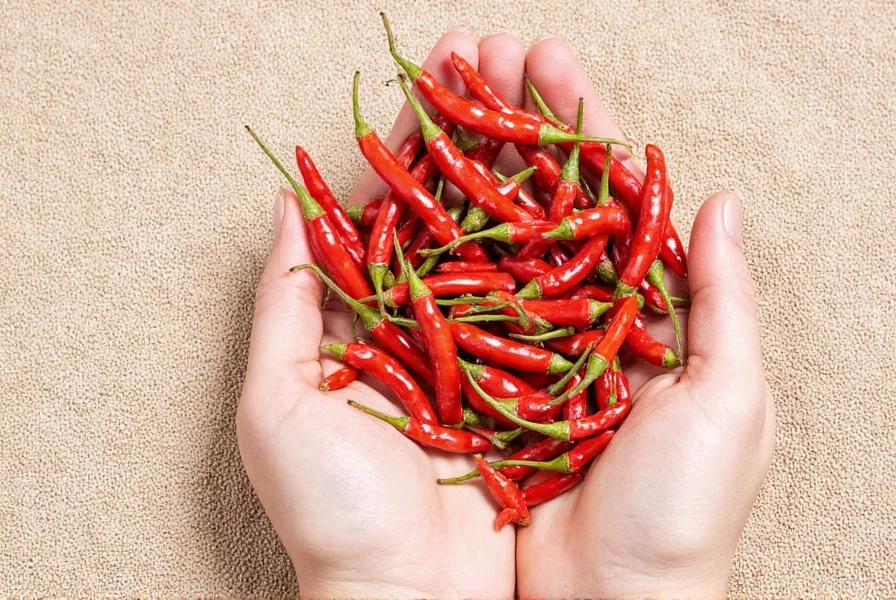
Remember, great cooking isn't always about the loudest flavors — sometimes it's the softest notes that linger the longest. And when it comes to color, subtlety, and balance, few spices do it better than Kashmiri red chilli.

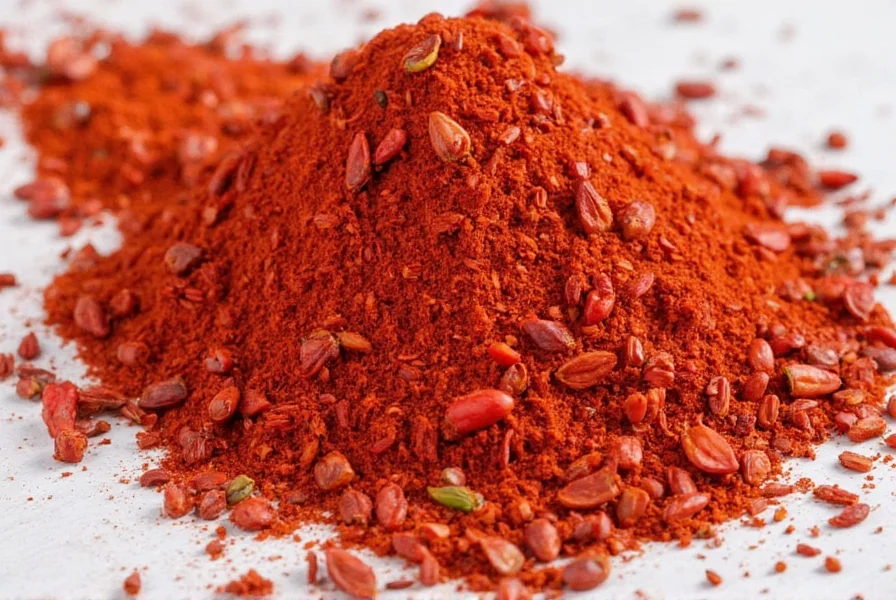









 浙公网安备
33010002000092号
浙公网安备
33010002000092号 浙B2-20120091-4
浙B2-20120091-4